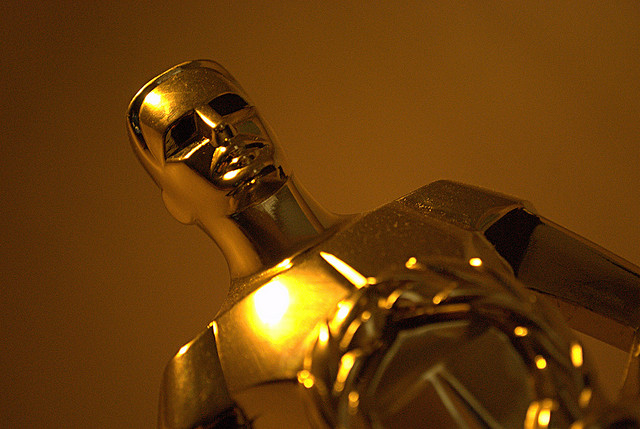No sooner had the Academy of Motion Pictures Arts and Sciences announced its Oscar picks on Jan. 24 — including an astonishing 11 nominations for “Hugo” — than began the controversy over the best films of 2011.
Though the Oscar nomination process is criticized as petty and flawed, the nominees are still worth consideration, if only as a snapshot of contemporary movie culture. A notable change this year is the new method of selecting the best picture nominees, created by the academy after extensive analysis. “A best picture nomination should be an indication of extraordinary merit,” said academy Executive Director Bruce Davis. “If there are only eight pictures that truly earn that honor in a given year, we shouldn’t feel an obligation to round out the number.”
Under the new system, anywhere from five to 10 films can be nominated if they have at least five percent of the total votes. This year there are nine nominees: “The Artist,” “Hugo,” “The Descendants,” “Moneyball,” “The Help,” “The Tree of Life,” “War Horse,” “Midnight in Paris,” and “Extremely Loud and Incredibly Close.”
The surprise nominations of niche films “Tree of Life” and “Midnight in Paris” are an obvious result of the new system, where passion from a small group of voters can go a long way. A less pleasant surprise is the nomination of “Extremely Loud and Incredibly Close,” which not only underperformed at the box-office but is also, according to rottentomatoes.com, the most poorly reviewed film to ever be nominated for best picture.
These movies are not expected to make it to the final round, where a picture needs endorsement from more than half of the voters. Since 1980 every best picture winner has also been nominated for best editing, making “The Artist,” “Hugo,” “The Descendants,” and “Moneyball” the only real competitors for the award. “The Artist” and “Hugo,” the darlings of award season, dominate the rest of the categories with 10 and 11 nominations respectively, though the nominations for “Hugo” are mainly technical. These movies have double the Oscar nominations of any other, making them both strong picks for the Oscar statuette.
Nominations for the best actor category were surprisingly diverse this year, with three foreign actors (Mexican Demián Bichir for “A Better Life,” the French Jean Dujardin for “The Artist,” and the British Gary Oldman for “Tinker Tailor Soldier Spy)” and two decidedly Hollywood actors: George Clooney for “The Descendants” and Brad Pitt for “Moneyball.” It appears that Oldman captured the British vote, as “Shame”‘s Michael Fassbender was not nominated despite a strong run in early award shows. In fact, the NC-17 “Shame” was passed over completely, even with its aggressive award campaign.
“Shame” isn’t the only indie movie to get snubbed. “Drive” has only received one nomination and “Martha Marcy May Marlene,” “Melancholia,” “We Need to Talk About Kevin,” and “Young Adult” didn’t get any at all. All these movies were well-received and enjoyed early hype, though none were crossover hits or got the five percent of votes needed to snag a best picture nomination. The lack of indie representation in the Oscar nominations is a sign of Hollywood’s gradual movement toward more broadly appealing hits during the recession. The closing of many major studios’ independent branches deflates the value of indie talent. All of these factors combined will eventually make it even harder for independent filmmakers to find funding, distributors, and an audience. One can hope that when the economy picks up it won’t be too late to reverse this sobering trend.
The academy continues to be wary of motion capture technology, failing to give “The Adventures of Tin Tin” a best animated feature nod and ignoring Andy Serkis’ work in “Rise of the Planet of the Apes.” Recently there has been much debate over whether motion capture is acting or animation. A nomination for either “The Adventures of Tin Tin” or Andy Serkis could have put the question to rest, but it looks like motion capture will have to remain in a cinematic grey area for now. In animation news, “Cars 2” is the first Pixar film not to be nominated for the best animated feature award, which should serve as a wakeup call to John Lasseter to steer away from sequels and return to the fresh ideas that made Pixar the success it is today.
The Academy Awards will be hosted by Billy Crystal on Feb. 26. A full list of the Oscar nominees can be found at www.oscar.com.


